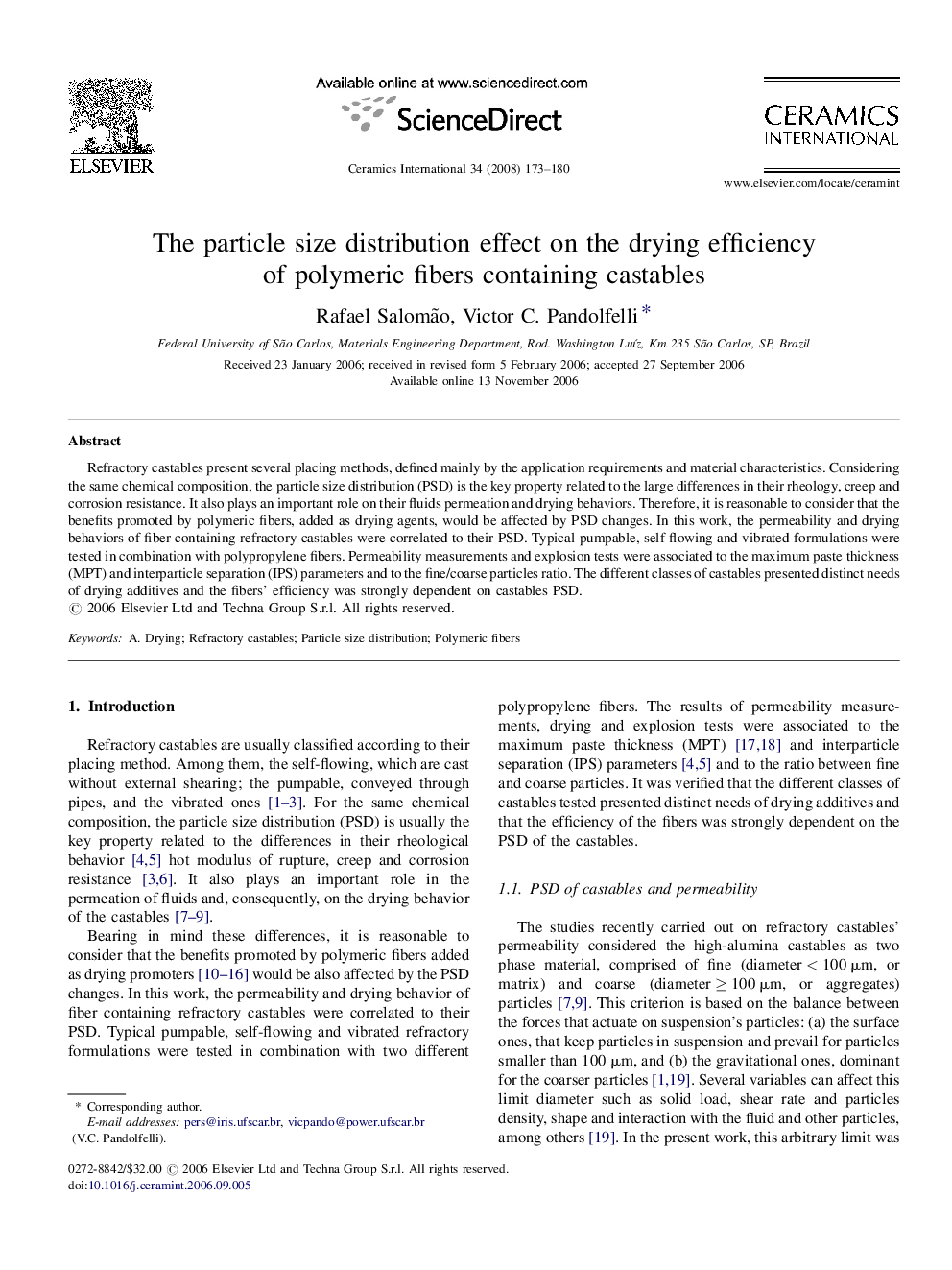| Article ID | Journal | Published Year | Pages | File Type |
|---|---|---|---|---|
| 1464155 | Ceramics International | 2008 | 8 Pages |
Refractory castables present several placing methods, defined mainly by the application requirements and material characteristics. Considering the same chemical composition, the particle size distribution (PSD) is the key property related to the large differences in their rheology, creep and corrosion resistance. It also plays an important role on their fluids permeation and drying behaviors. Therefore, it is reasonable to consider that the benefits promoted by polymeric fibers, added as drying agents, would be affected by PSD changes. In this work, the permeability and drying behaviors of fiber containing refractory castables were correlated to their PSD. Typical pumpable, self-flowing and vibrated formulations were tested in combination with polypropylene fibers. Permeability measurements and explosion tests were associated to the maximum paste thickness (MPT) and interparticle separation (IPS) parameters and to the fine/coarse particles ratio. The different classes of castables presented distinct needs of drying additives and the fibers’ efficiency was strongly dependent on castables PSD.
